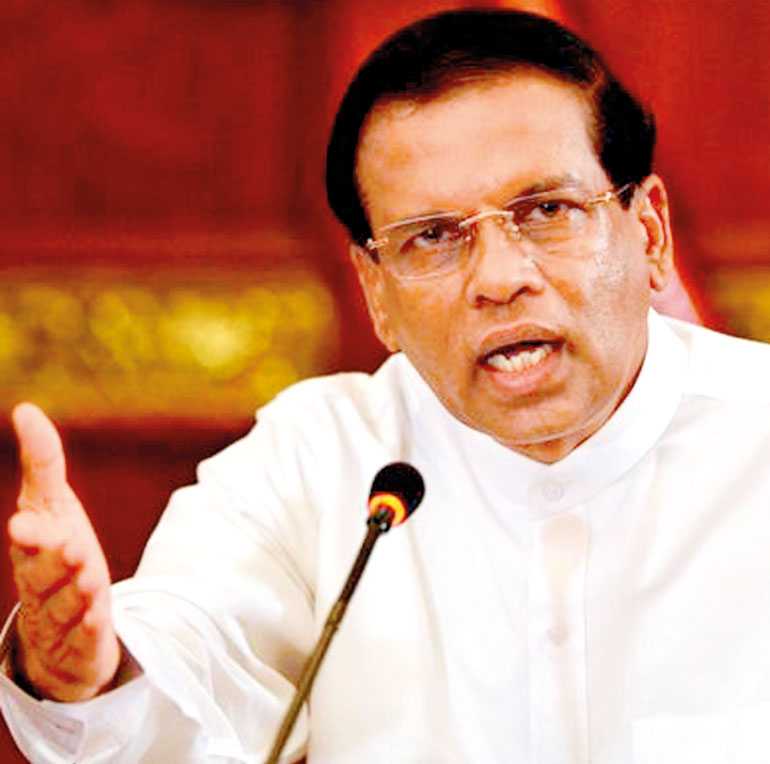Monday Feb 16, 2026
Monday Feb 16, 2026
Monday, 28 January 2019 00:00 - - {{hitsCtrl.values.hits}}

President’s Counsel is a title to recognise those who have reached eminence in the legal profession and have maintained high standards of conduct and rectitude. The title is equivalent to Queen’s Counsel (QC) or King’s Counsel (KC) in the British legal system. It is part of the tradition in the legal system, first introduced in England as far back in 1597. A QC or a KC is appointed by the monarch to be one of ‘Her/Her Majesty’s Counsel learned in the law’ and the term is also recognised as an honorific. 
Until the 1972 Constitution by which Sri Lanka became a Free, Sovereign and Independent Republic, eminent Sri Lankan legal luminaries were conferred with the title KC and QC by the British monarch. Since 1972, up until 1984, the President had powers to appoint ‘senior attorneys-at-law’. In 1984, as the 8th Amendment to the 1978 Constitution, by Article 33 (cc) introduced the term ‘President’s Counsel’ who could enjoy the same privilege as of a QC and were to be appointed by the President of Sri Lanka.
At present, appointing of President’s Counsel (PC) is a power vested with the President as per Article 33 (2) (e) of the Constitution.
The senior officers in the Attorney General’s Department, confers silk ex-officio when the reach the post of Additional Solicitor General. With regard to the PCs appointing from private bar, the Constitution does not provide a procedure for selecting suitable candidates and the President is not legally bound to consult anyone in this regard. Also, the Constitution does not provide a limitation as to the number of appointments the President can make. Last December, President Maithripala Sirisena appointed 25 President’s Counsels who took oaths recently. In year 2017 also, President Maithripala Sirisena appointed 25 President’s Counsels. President Mahinda Rajapaksa in the year 2012 appointed 21 President’s Counsels.
Last year, the Presidential Secretariat announced four qualifications that were required when applying for the appointment of President’s Counsel. Rough English translations of them are;
Apart from these, there are no criteria or procedure provided in the law for selecting lawyers to be the President’s Counsel nor is there a panel to screen the applications, known to the public. Whereas in other jurisdictions, it appears that a process of selecting and appointing QCs/KQs have been regularised with established procedure.
In England and Wales, a process for the selection and appointment of Queen’s Counsel was developed in the year 2005 by the Bar Council and the Law Society, with support from the Ministry of Justice. Applicants are considered under a competency framework comprising five key areas: understanding and using the law; written and oral advocacy; working with others; diversity; and integrity. A selection panel of 10 people including barristers, solicitors, a retired judge and mostly non-lawyers consider confidential assessments from judges, fellow advocates and professional clients. The panel interviews applicants and finally recommends suitable applicants to the Queen.
The process is very much formal and that it requires applicants to pay an application fee (currently £ 1,800), and for applicants who are appointed, a further appointment fee of £ 3,000. Notably, an agreed process has been designed to enable solicitor advocates to seek appointment as QCs with the assurance that they would be assessed fairly alongside barrister applicants. All what these reflect is that there is a formal and established process and criteria in England and Wales for the appointment of QCs.
Article 33 (2) (e)
In addition to the powers, duties and functions expressly conferred or imposed on, or assigned to the President by the Constitution or other written law, the President shall have the power to appoint as President’s Counsel, attorneys-at-law who have reached eminence in the profession and have maintained high standards of conduct and professional rectitude. Every President’s Counsel appointed under this paragraph shall be entitled to all such privileges as were hitherto enjoyed by Queen’s Counsel;
In Scotland, the appointment of Queen’s Counsel is made by Her Majesty the Queen on the recommendation of the First Minister (Head of Scottish Government – appointed by the Parliament), who seeks nominations for that purpose from the Lord Justice General (equitant to Chief Justice in our system). Recommendations for appointment of Silks to the First Minister is a matter for the Lord Justice General alone.
However, the process includes appropriate consultation with the Dean of the Faculty and the President of the Law Society of Scotland. The Lord Justice General appoints a panel consisting of Senators of the College of Justice to consider each of the applications. Among other criteria, applicants are expected to have practiced in the superior courts for at least thirteen years. In 2002, the first appointment of a solicitor advocate was made, following the law reforms and a solicitor advocate who is so appointed is correctly designated as ‘Queen’s Counsel, Solicitor Advocate’.
In India, the term ‘Senior Advocate’ is used to the QC equivalent. The system of designating lawyers as senior advocates was created under the Advocates Act 1961. However, it is not conferred by the President or Prime Minister of India but by the High Courts and the Supreme Court. There was an outcry among the legal practitioners in India that there is no transparency in the procedure and no criteria laid down for determining excellence in advocacy and no rational nexus between the persons designated and their excellence or no rational reason for rejection of persons of eminence and ability. A petition was filed to the Supreme Court in 2015 by a Senior Advocate and as a result in 2017, the Supreme Court set out a detailed procedure and clear criteria for designating lawyers as senior advocates.
Under the new procedure, each High Court and the Supreme Court will need to have a Permanent Committee for Designation of Senior Advocates composed of the Chief Justice, the two senior-most judges, the Advocate General or Attorney General and an eminent member of the Bar nominated by the other four members. This is significantly different from the old procedure whereby only the judges made the decisions. Applications for designation as senior advocate are received and vetted by the Secretariat of the Permanent Committee, which then process the applications and sends a report to the Committee.
The Committee has to then interview the applicants and assess them considering the years of experience, applicant’s contributions to reported judgments in the last five years and publications made by the applicant. The Permanent Committee will then make recommendations and the court makes the final determination.
The above three legal systems highlight the fact that there is a formal process of selecting applicants to be the QCs or Senior Advocates and nominations or recommendations are made by a third party.
In the case of Judges to the Supreme Court and Court of Appeal in Sri Lanka, though the President nominates and appoints them, it requires the approval of the Constitutional Council, so there is a check and balance. Similarly, though the President appoints High Court Judges, it is the Judicial Service Commission that nominates judges and therefore, there is a check and balance.
Though the title President’s Counsel is just an honorary recognition, in order to protect the status of that position and to protect the best interest of the bar as a whole, it is desired to have a procedure laid down on selecting and recommending suitable persons to the President rather than allowing the President himself to decide and appoint. There should be an amendment to the Constitution in this effect and the Bar Association of Sri Lanka (BASL) needs to play a leading role in formulating any procedure to this effect.
For example, if we wish to have a system of apply and get, there could be a committee consisting of the Attorney General, BASL President and three senior President’s Counsels to have a secret vote on each of the applicants after evaluating a given criteria. The names of the applicants who gets majority approval from the committee could be sent to the President who then in his discretion appoints President’s Counsels. If we adopt this process, there is an assurance that no unsuitable applicants be appointed though still the President can decline suitable applicants being appointed.
There were and still are some eminent lawyers who do not wish to apply and get the status of President’s Counsel. Therefore, without an application process, if the President wishes to appoint someone or several of them as President’s Counsels, those names could be sent to a secret vote among the judges of the Supreme Court and Court of Appeal and those who get majority approval could be appointed by the President as President’s Counsels.
The end result should be to curtail the unfettered discretion vested with the President by the Constitution in appointing President’s Counsel and have a procedure setup in selecting and recognising legal luminaries of the era and thereby giving more recognition to the legal profession in the society.
(The writer is an Attorney-at-Law.)